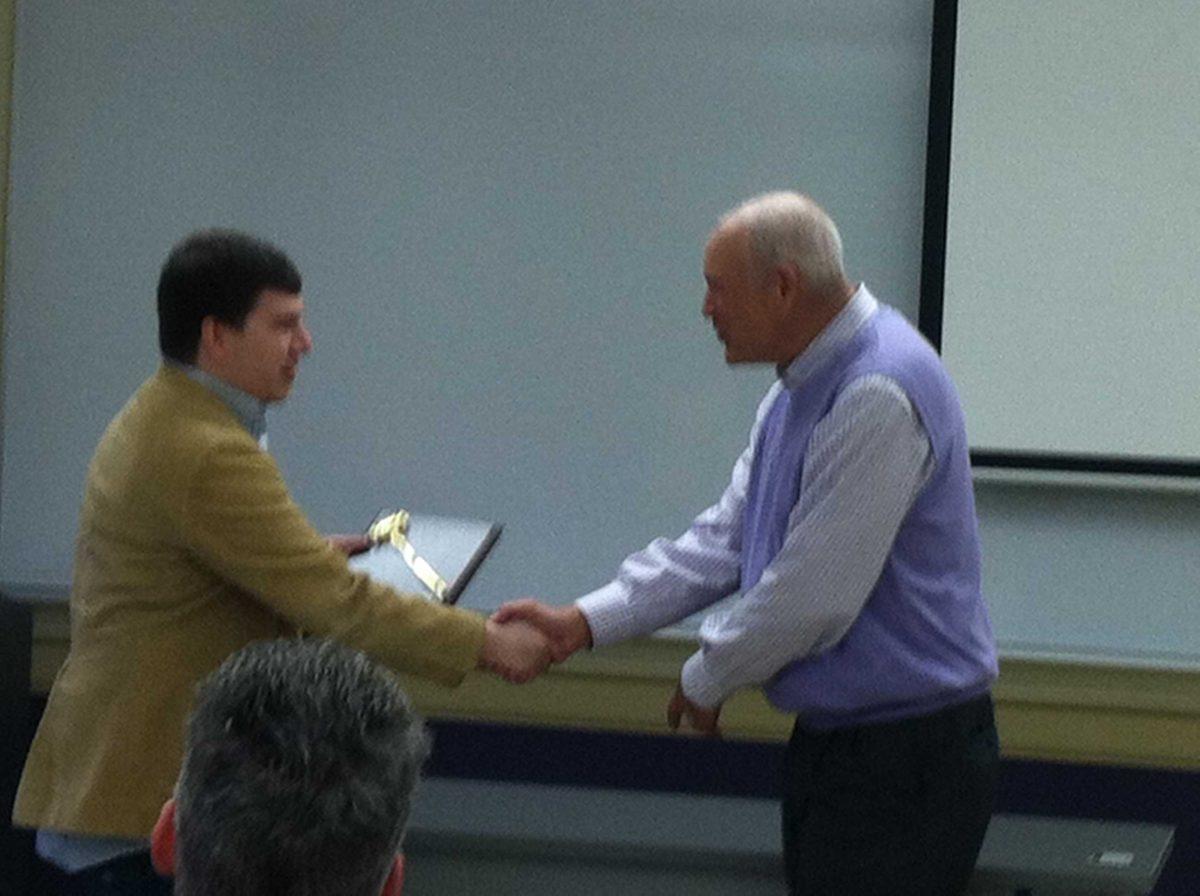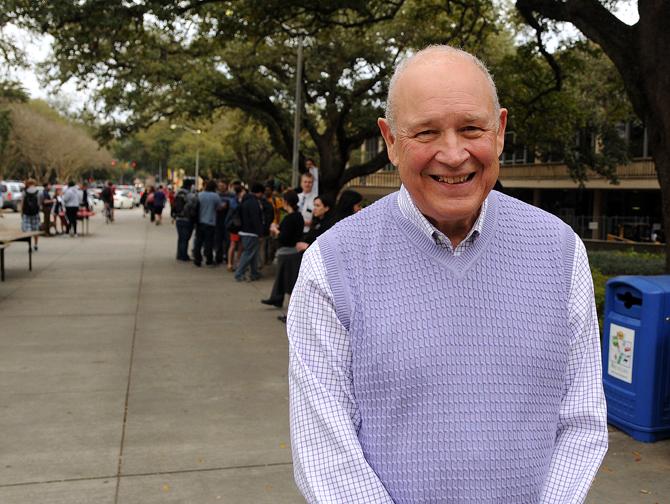For Edwin Hunter, who founded the University’s Free Speech Plaza in 1964, discussion today is far too focused on influencing people, rather than persuading them. He said politicians and opinion leaders should focus on well–founded arguments and facts, rather than using any means necessary to change mindsets.
At the department of communication studies’ March colloquy on Wednesday in Coates Hall, LSU Speech and Debate team coach Austin McDonald presented Hunter with an Outstanding Alumni award, recognizing him for the importance Free Speech Plaza continues to have today in addition to Hunter’s donation of $5,000 to the team.
Hunter told assembled students and professors the idea of Free Speech Plaza was a “conspiracy” between The Daily Reveille and what was then referred to as the speech department. The editor of the Reveille promised him coverage if he could ensure the establishment of Free Speech Plaza.
The University was not so friendly to free speech when he arrived on campus in 1961, Hunter said. Back then, the Young Republicans were not allowed on campus because the administration feared they would be too radical, he said.
Hunter said his methods for establishing Free Speech Plaza were a bit slippery. He implied, to what was then called the Dean of Men, he already had permission from football coach Carl Maddox to establish Free Speech Plaza. After he got the Dean’s permission, he brought it to Maddox, who gave him the go ahead.
The first speech in the history of Free Speech Plaza was a critique of the then-Governor of Louisiana John Julian McKeithen’s policy about alcohol on campus, Hunter said. Because they were only allowed to speak in a certain, secluded location, the only people who were there to listen were other debaters and the Reveille staff covering the event.
Hunter said he wanted more exposure, so he directed the group to pick up their stuff and move to a more populated location, near where Free Speech Plaza sits today. The construction of the Student Union finalized Free Speech Plaza as it is currently.
His dream for Free Speech Plaza was to be like Hyde Park in London, Hunter said, where people would spontaneously proclaim their views on whatever subject tickled their fancy and could be engaged in an open manner. The dream is most likely out of reach, Hunter admitted, but he said Free Speech Plaza can still serve as an avenue for discourse.
Although he is not completely familiar with Free Speech Plaza in its present form, Hunter said he thinks the religious groups who tend to dominate the alley could use a little competition.
“I think the speech department should reclaim it,” Hunter said. “There should be more economic and political issues discussed.”
In addition to his talk, Hunter donated $5, 000 to the LSU Speech and Debate team. McDonald said the amount is about what the team receives annually.
“This is a huge help,” McDonald said. “This will pay for our trip to nationals.”
Founder of Free Speech Plaza returns, reminisces on history
March 12, 2014
Edwin K. Hunter accepts his recognition from Speech and Debate coach Austin McDonlad.







